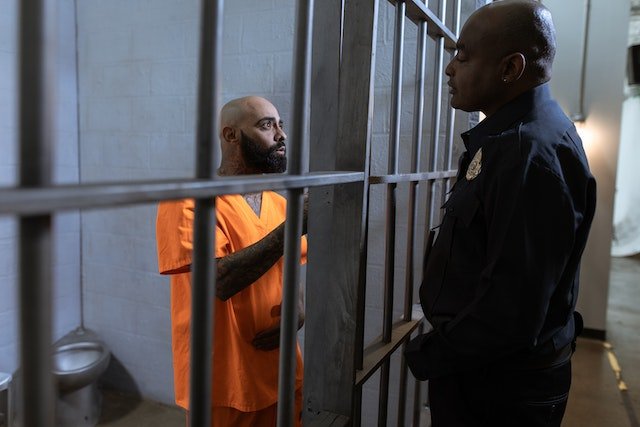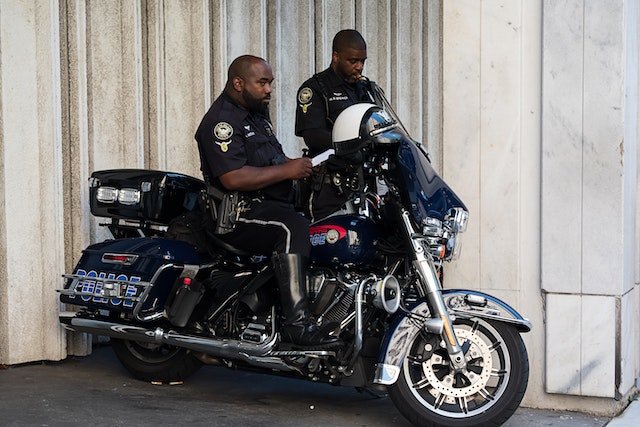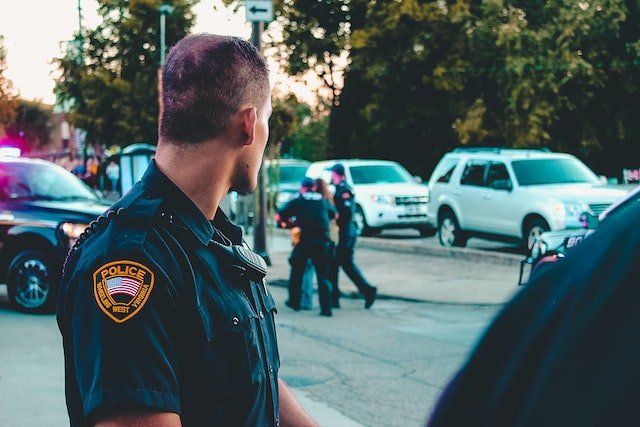Is Being A Correctional Officer Dangerous?
Correctional officers can be a risk because of the unpredictable nature of prisoners’ behavior, the potential for violence as well as exposure to potentially dangerous situations. Correctional officers are in charge of maintaining peace and security in prisons, putting themselves at risk for physical and emotional injury. Although training and protocols reduce risks, the job requires concentration and vigilance to ensure the well-being of both inmates and officers.
What Are The Drawbacks To Being A Correctional Officer

Correctional officers are often in stressful environments. Being in constant contact with inmates who exhibit various levels of anger or frustration can be detrimental to the mental health of their colleagues.
Witnessing self-harm or violence or the grueling conditions that some prisoners in can result in chronic stress, anxiety, or even post-traumatic disorder (PTSD) in certain instances. Emotional stress can go beyond the confines of work, impacting relationships with family members and overall well-being.
Physical Risks and Safety Concerns
Correctional facilities are often dangerous areas, as officers are vulnerable to physical assault frequently. Prisoners may be prone to resentment or anger that can trigger incidents of confrontation or assault.
While police officers receive instruction to deal with these circumstances, the inherent dangers remain. In addition, the need to ensure order and avoid escapes could put officers in physically challenging situations that can cause injuries and health problems in the course of time.
Long and Irregular Working Hours
Correctional officers usually are required to work shifts that last 24 hours per day, seven every day of the week, which includes holidays. Working hours that are irregular can affect their sleeping habits, which negatively affects their general health.
The grueling schedule also restricts personal time, which can stress relationships with family members. Absence from important gatherings and events due to work commitments could result in feelings of loneliness and disconnection from their family members.
Limited Career Advancement and Growth
Despite their commitment and commitment to the profession, Correctional officers can be limited in their opportunities to advance their careers. The hierarchical structure in correctional facilities could make it difficult to rise up the ladder.
In addition, the comparatively small pay scales compared to the level of accountability and risk they face can demotivate officers, making experienced officers look for possibilities elsewhere.
High Levels of Burnout
The intense nature of the work demands, combined with physical and mental difficulties, leads to an increase in fatigue among correctional personnel. Constant exposure to stressors as well as the need to remain vigilant could result in feelings of fatigue and frustration.
As time passes, this exhaustion could erode the enthusiasm and dedication that officers contribute to their jobs and affect their overall performance as well as how they provide services.
Lack of Public Recognition and Appreciation
Correctional officers are often working in the shadows and away from the spotlight. Their work in keeping law and order in correctional institutions can go without notice or appreciation. Insufficient acknowledgment of their sacrifices and efforts could result in feelings of underestimation and unworthiness, affecting their work satisfaction and morale.
Ethical Dilemmas and Moral Struggles
In close contact with prisoners, Correctional officers can be confronted by moral situations which test their morality. The need to keep order while also having to provide humane treatment to prisoners could lead to internal conflict. Professionals may be having to make difficult decisions that could affect their moral integrity as well as moral health.
Are Corrections Riskier Than Police

Correctional facilities, often called prisons or jails, serve an important part of the system of criminal justice. They are not just to detain people who are convicted of committing crimes but also for rehabilitation and reintegration back into society. In these prisons where prisoners are sentenced to serve their time waiting for the verdict or after conviction.
The Challenges within Corrections Facilities
However, despite their stated goal, corrections facilities face multiple challenges that could cause the perception of a prison environment as unsafe. Insufficient resources, overcrowding, and inadequate ratios of staff to inmates are only a few of the factors that contribute to tensions in these facilities. These factors can result in an increase in the risk of conflict and violence among inmates creating an environment in which there are dangers.
Rehabilitation Vs. Recidivism
One of the main purposes of corrections programs is rehabilitation. It aims to provide inmates with the required abilities and help to integrate effectively into society after release.
However, the efficacy of rehabilitation programs is not the same in a variety of ways, and some believe that the absence of a comprehensive program can create an escalating cycle of recidivism in which people relapse back into crime after being released.
Deciphering Police Departments

Police departments are the first security line against crime and are charged with enforcing the law, keeping the law, and ensuring the safety of the public. Police officers receive intense training to deal with various situations and are equipped to arrest if needed.
Problems in Law Enforcement
Like corrections facilities, police departments are also faced with their own set of issues. Police violations, excessive use of force, and biases have attracted an enormous amount of attention and prompted discussions about the risks associated with police work.
These incidents, which are often reported in the media, can contribute to the perception that police officers could be dangerous for certain groups of people.
Community Policing and Trust-Building
The efforts to tackle these issues have led to the development of initiatives for community policing, which focus on building positive relationships between law enforcement personnel and those they work with. Through fostering trust and cooperation, they aim to reduce the risks posed due to a lack of knowledge and understanding.
The Ongoing Debate
The argument over whether corrections facilities are more dangerous than police is complicated and multi-faceted. Corrections facilities and police departments are part of structures that are fundamentally flawed but essential to maintain the order and fairness of society. Although violence and danger are commonplace in both, it’s important to understand that each plays a role in security for the general public.
Are Correctional Officers A Federal Job

Correctional officers are skilled professionals who are responsible for supervising people who have been detained in correctional facilities like prisons and jails. Their main job is to keep security in check and enforce the rules to ensure the safety of prisoners as well as staff and visitors. They play an essential role in preventing escapes, keeping order, and responding to issues within the prison environment.
Government Jobs Stability and Security
One of the primary aspects that makes the position that a correctional official so appealing is the fact that it’s an official government job. Government jobs are renowned as stable, have broad benefits, and have the possibility of future growth. Correctional officers are directly for the government agencies that supervise corrections; they have the benefits of working within an organized and controlled system.
Benefits of Government Jobs for Correctional Officers
Government jobs, which include correctional officer posts, offer unmatched job security. These positions are not affected by fluctuations in the economy, which means steady income and financial security for families and employees.
Attractive Benefits Packages
Correctional officers are often offered advantageous benefits packages, such as retirement plans, health insurance, and paid time off. These benefits contribute to greater quality of life as well as general satisfaction with work.
Opportunities for Advancement
Government agencies generally offer opportunities to advance their careers and professional growth. Correctional officers have access to training workshops, courses, and courses that improve their capabilities and allow them to be open to promotions.
Government vs. Private Sector Employment
Correctional officers are employed in the public sector; it’s important to examine the differences between government positions and jobs within the private industry so that you be aware of the advantages and disadvantages of each alternative.
Government Employment
Government jobs provide stability as well as predictable schedules, which provide great benefits. The streamlined setting and clear pathways to advancement attract people looking for long-term security in their careers.
Private Sector Employment
Contrary to this, the private sector typically offers more flexible and dynamic job opportunities. However, positions in the private sector can come with a greater risk of being uncertain since firms are susceptible to the market’s fluctuations.
Are Correctional Officers a Government Job
To answer the question, Correctional officers are jobs that belong to the government. They are directly associated with government agencies that oversee corrections as well as law enforcement agencies. Correctional officers are employed by state as well as federal organizations and are responsible for the efficiency of correctional facilities as well as the security of everyone in the.
The Significance of the Question
The question of whether correctional officers work as government employees has significant implications for people contemplating a career in the sector. The stability, advantages, and potential for advancement with government work make the position of an officer in corrections an appealing possibility for people looking for an enjoyable and secure job.
FAQ’s
Why is being a correctional officer dangerous?
Correctional officers work in close proximity to potentially violent inmates who may have criminal histories, mental health issues, or a history of aggressive behavior. They are responsible for maintaining order, ensuring security, and managing the daily activities of inmates, which can expose them to various risks.
What are the potential risks and hazards correctional officers face?
Correctional officers face a range of risks including physical assaults, verbal abuse, exposure to contagious diseases, injuries from inmate altercations, and even hostage situations. The confined and tense environment of a correctional facility can escalate conflicts quickly.
Are correctional officers at risk of mental health issues?
Yes, correctional officers are at a higher risk of developing mental health issues such as stress, anxiety, depression, and post-traumatic stress disorder (PTSD) due to the constant exposure to traumatic events, violence, and the demanding nature of their work.
How are correctional officers trained to deal with these risks?
Correctional officers typically receive training in self-defense, conflict de-escalation, crisis management, and communication skills. They are also trained to identify signs of mental health issues in inmates and to respond appropriately.
What measures are in place to protect correctional officers?
Correctional facilities implement security protocols, provide protective equipment, and use surveillance systems to enhance officer safety. Some facilities also have specialized response teams to handle high-risk situations.
Is being a correctional officer always dangerous?
While being a correctional officer involves inherent risks, the level of danger can vary depending on factors such as the specific facility, the inmate population, the quality of training, and the support systems in place. Some officers may have relatively calm and uneventful shifts, while others may face frequent challenges.


















